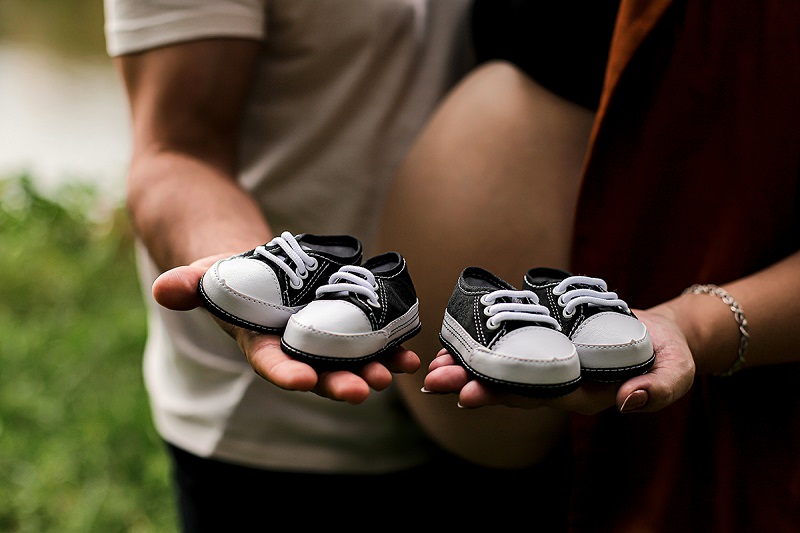I am pregnant with boy/girl twins (di/di) and have been told by my OB I will have to deliver by 38 weeks. Then I talked to another twin mom, who is seeing a high-risk OB who told her she can go until 40 as long as everything is okay. So I’m wondering what the 38-week rec is about and the data behind it?
—Soon-to-be mom of 3
With all pregnancies, at each gestational age there is a constant ongoing assessment of the overall risk of continuing pregnancy as compared with the overall risk of delivery. This is a complex calculus that includes risk to the mother, risk to the fetus (prior to birth), risk to the neonate (after birth), and risk of cesarean if labor is induced, and then layered on top of that are the preferences of the mother for her birth experience.
Earlier in pregnancy, the calculus is relatively straightforward: since delivery would produce a preterm neonate, and there are known and significant risks to prematurity, there needs to be a compelling reason to deliver, like a significant risk to the mother’s health or a high risk of stillbirth with an ongoing pregnancy. As pregnancy advances into later gestational ages and the risk of prematurity goes down, so too does our threshold for recommending delivery.

For certain maternal conditions or pregnancy complications, there is an increased risk of stillbirth compared with the general population, so based on the magnitude of that risk, there are general guidelines for when delivery is typically recommended. However, for most conditions, it is difficult to find (or produce) high-quality evidence to prove that the recommendation is necessary, as well as the precise gestational age at which it is now safer overall to deliver rather than wait. This is because stillbirth is rare, and because most people are not willing to enter a study where they are at increased risk for stillbirth and they might get randomly assigned to the “wait and see” group. So guidelines are usually produced from the best available — albeit limited — data and expert recommendation. A good list is one produced by the American College of Obstetricians and Gynecologists and can be found here.
Which brings me to your question: twins.
Most patients with twins do not make it past 38 weeks due to labor, ruptured membranes, or some other compelling reason to deliver (hypertension or fetal growth restriction, for example). So the question of going past 38 weeks on day six of that week (6/7) doesn’t come up that often! But for those who do get there, the best data available suggests that at 38 to 39 weeks, the risk of stillbirth for twins seems to be higher than the risk of neonatal death after delivery. The difference is about 1%. Meaning if we recommend delivery at 38 weeks for 100 patients with twins, we will potentially prevent one stillbirth. However, the data supporting this are limited and retrospective, so it is hard to say that with complete confidence. Also, 1% is still relatively uncommon. This could be why you are getting differing opinions. There are even experts who recommend delivery a little earlier, at 37 to 37 6/7 weeks.
In my own practice, for uncomplicated dichorionic diamniotic twins, I do typically recommend delivery at 38 0/7 to 38 6/7 weeks (or earlier, if there is another reason), which is in line with the ACOG recommendations.
Community Guidelines













Log in
Mom of twins here. I’ve been in a twin mom group for over three years where everyone shares when their babies arrive and when we were all giving birth we tracked it through polls with hundreds of responses! (Love this data). Only about 20% even make it to 38 weeks – the rest go early for a wide variety of reasons as mentioned here. I personally had a scheduled C-section (one twin was breech) at 38+1 aligned with the ACOG recommendations. 38 weeks is considered “early term” so to me, there was absolutely no reason to push back on that recommendation; at a personal level, I was beyond miserable and SOOO ready for those babies to arrive. Best of luck with your twins!
hi! I am currently pregnant with twins… is your twin group national? I’m based in NY and would love more of a community!
Who wrote this? It says Emily Oster but then says “in my own practice“ as if she has a medical practice?
It’s labeled as Nathan Fox, an MD who cowrote her most recent book and with whom she often collaborates
Separate issue but would you also agree to deliver at 39 weeks for women over 40? I’m currently pregnant and 40 years old and this has been the recommendation. Is the baby fully developed by then? Thank you!
39 weeks is considered full term, yes. The only risk re: full development would be if the dating was wrong and the baby wasn’t actually 39 weeks.